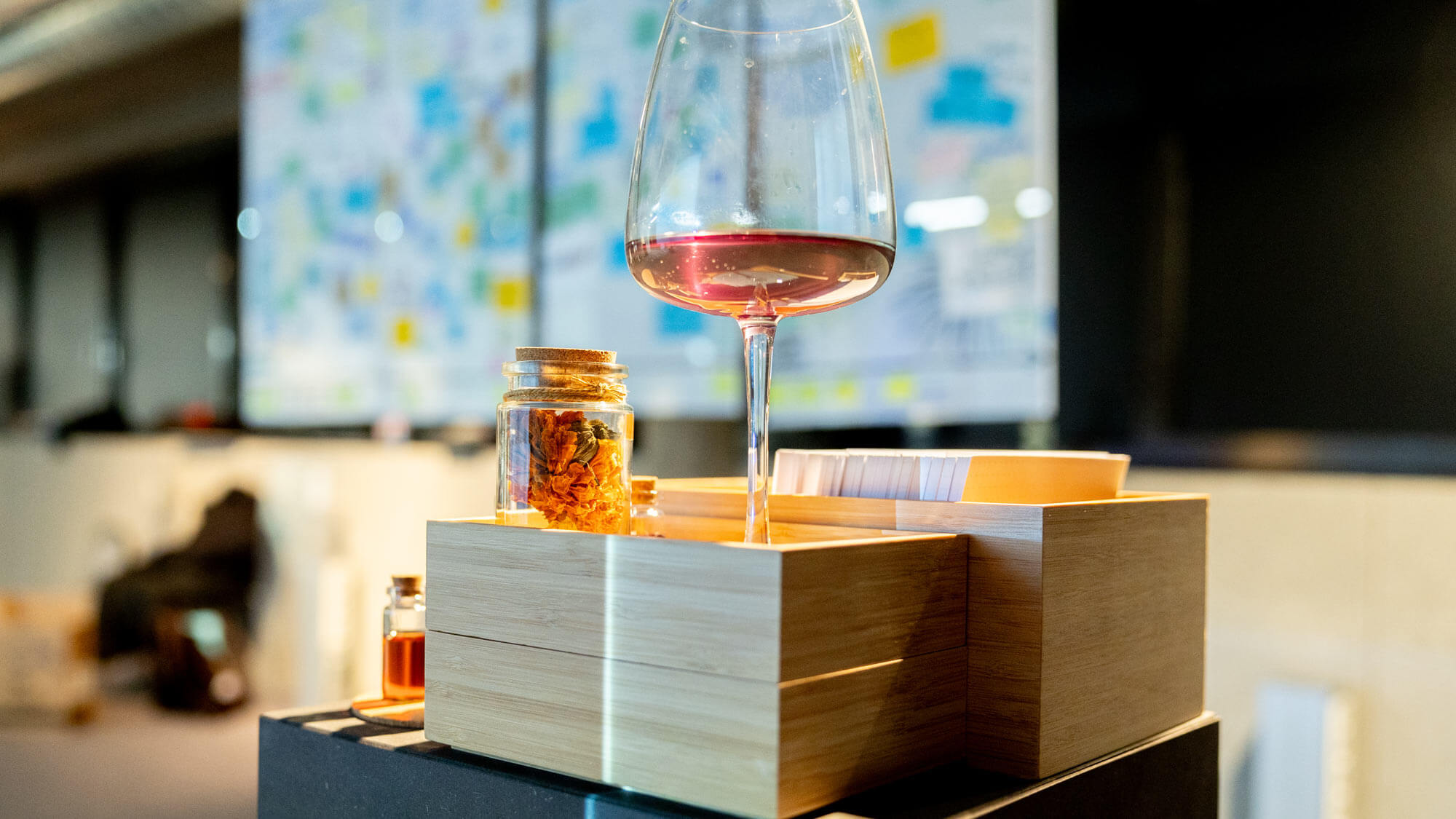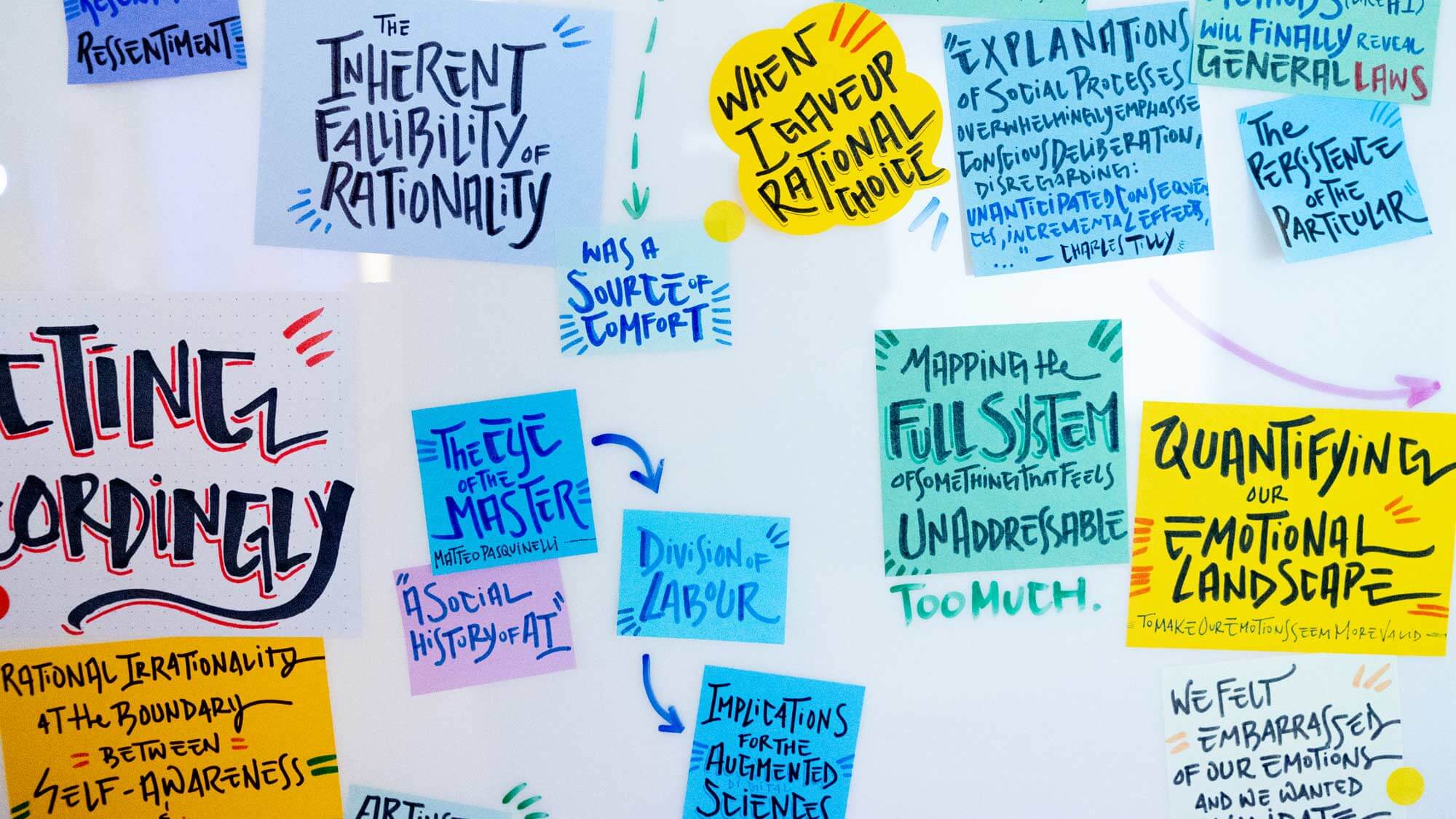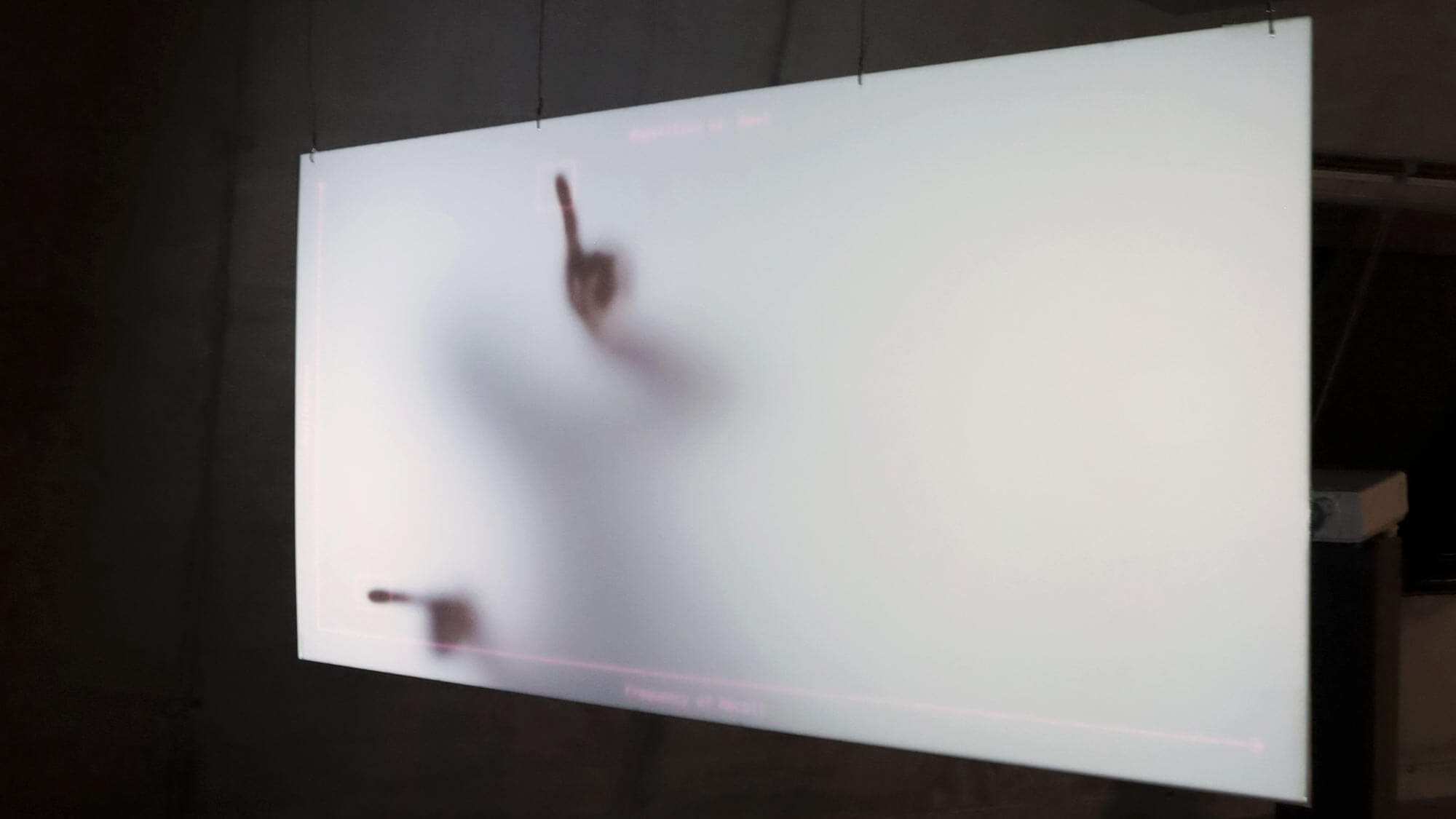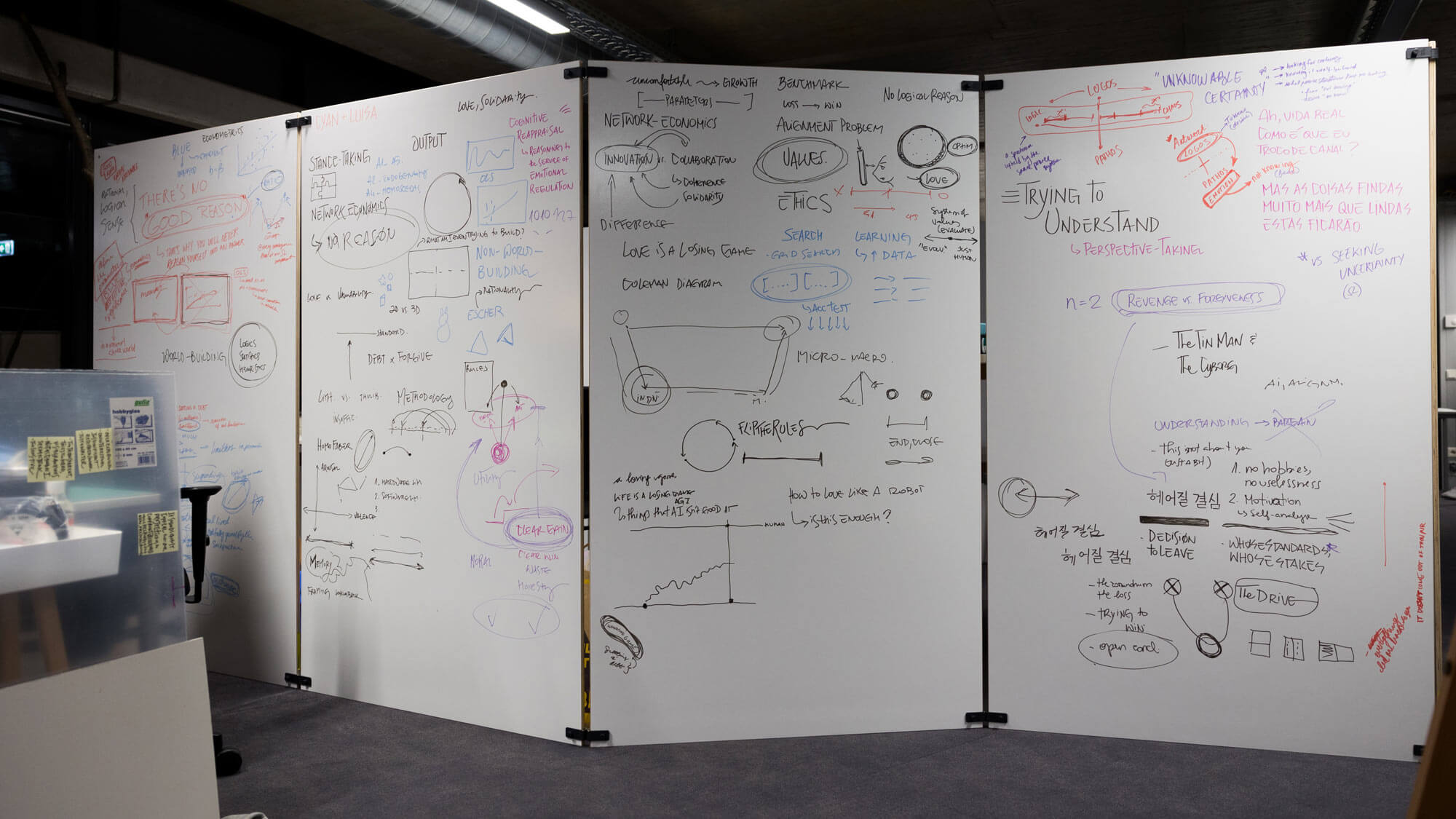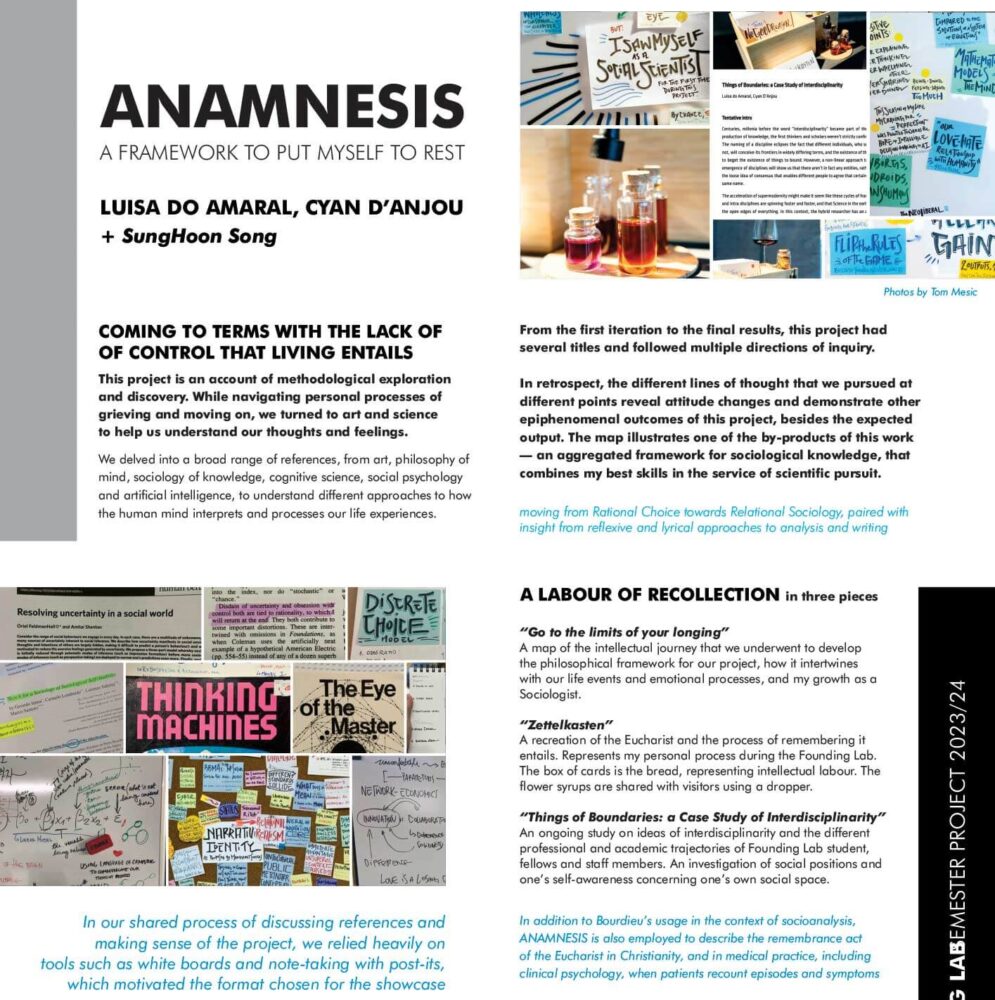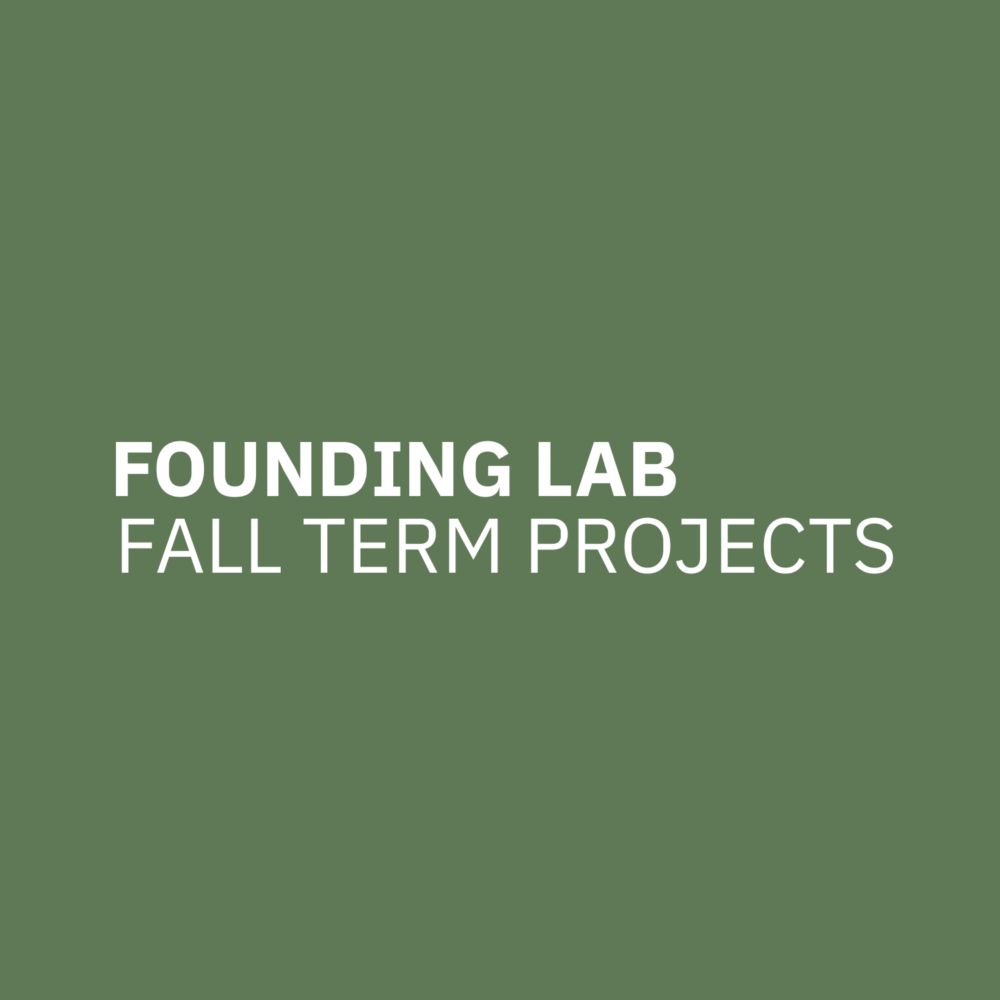
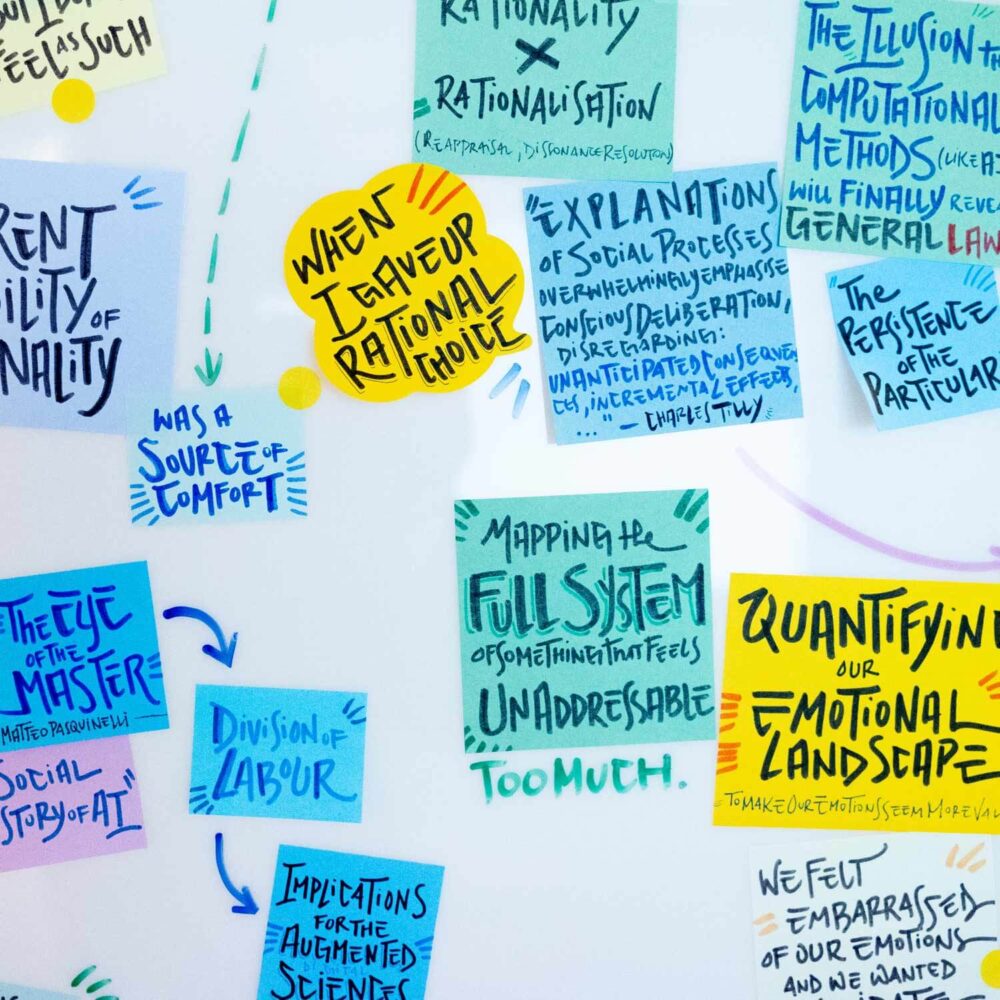
Anamnesis
A Framework to Put Myself to Rest
by
Luisa do Amaral & Cyan D’Anjou
Project Reflection by Luisa do Amaral
This project is an account of methodological discovery and exploration, triggered by an identity crisis that I was navigating around the time when I came to Linz for the Summer School, and which sparked the friendship with Cyan, my teammate. It further develops topics that I discussed or worked on, during the first part of the Founding Lab, such as transparency in the digital age, in the Brain-Computer Interface topic group; social interactions in interdisciplinary teams, the topic of my speech for the Conference Task Force; the robotic aspirations, and reason-emotion split, discussed in the play “Uncanny Valley.”
Anamnesis means “a calling to mind”, and this word is employed in three different contexts. French sociologist Pierre Bourdieu called the task of socioanalysis a labour of anamnesis — of bringing to mind one’s own knowledge of the world, and one’s self-awareness concerning the conditions for this knowledge. In clinical psychology, anamnesis refers to the patient’s recollection of events that are relevant to their case history. In the Christian tradition, Anamnesis is the remembrance of Jesus’s sacrifice through the Eucharist. These three contexts provide different devices to articulate the three pieces that make up the final output.
“Go to the limits of your longing” is a map of the shared intellectual journey that Cyan and I went through when developing the philosophical framework for our project, and how it intertwines with our personal life events and emotional processes, and especially my own development as a Sociologist. Using predominantly post-its, it narrates our journey from trying to develop a project that would validate our feelings, towards aggregating perspectives and insight into a framework that would put the characteristics we were conscious about to the service of science and creativity. The map contains personal insight from our conversations, my therapy sessions and meetings with my Professor and other peers.
“Zettelkasten” is a recreation of the Christian Eucharist, and it represents my personal process during the Founding Lab. The box of cards stands for the bread, and it represents my labour, with bite-sized versions of all the notes I took, essays I wrote, and the over 100 references I read for this project. Homemade calendula and wild pansy syrups represent my heart, and they are shared with visitors using a dropper.
“Things of Boundaries: a Case Study of Interdisciplinarity” is an ongoing study on different ideas of interdisciplinarity and different professional and academic trajectories of Founding Lab students, fellows and staff members. We investigate how different actors view their own life journeys towards working in interdisciplinary settings, and hypothesise how their views reveal their social position, and whether we find radically different ideas of what interdisciplinarity is. Interviews are currently being conducted.
The most important output of this project is actually a by-product of the intellectual exploration that was undertaken. By the trust of my collaborators and facilitators, and my Professor’s validation, I was able to see myself as a Sociologist for the first time since my current research started, in mid-2019. The third output, the paper about interdisciplinarity, is articulated through the sociological framework developed throughout the project, employing relational analysis (with the work of Harrison White and Ann Mische), with insight from reflexive and lyrical approaches (after the works of Pierre Bourdieu and Andrew Abbott). Although I recognise how my background in architecture influences my approach to research design, I was able to curate a methodology to leverage my skills and unique social position to the service of the social sciences.
The Sketches for Self-Analysis
Process reflection by Cyan D’Anjou and Luisa do Amaral
In his discussion of subversions of rationality, Norwegian philosopher Jon Elster describes the moral and intellectual fallacies that humans are guilty of, when dealing with mental or social states that are “by-products of actions undertaken for other ends” (Elster, 1983). These are states that cannot be brought about intentionally, nor can they be “explained away” easily by connecting the outcomes to specific actions.
The Sketches for Self-Analysis are explorations born out of our mutual experience of eluding the feeling of loss by seeking understanding through rationalisation and finding explanations through analysis. Our projects–addressed in two distinctive formats, an immersive visual performance and an academic paper–both delve into different theories of how the human mind processes and interprets life experiences, from philosophical, sociological, psychological and cognitive perspectives. To the extent that this study investigates the obsessive search for meaning or purpose in uncertainty, it starts from ourselves, who connected through a shared process of grieving and navigating personal crises. We combined our backgrounds and dispositions to craft a framework that would allow us to reinterpret our situations. Our interdisciplinary approaches, characterised by the deliberate convergence and divergence of our inquiries, culminate in the physical representation of a shared reflective process–a candid exposition of self-analysis.
Our exhibition space includes a cartography of the theoretical journey of developing the philosophical framework for our project, and how it intertwines with our life events and emotional processes. It demonstrates how our intellectual investigations reflected or affected our insight into personal thoughts and feelings. Particularly relevant are the different ways that the desire for self-validation was revealed through our choices of literature and line of inquiry, eventually coalescing into an aggregated framework that channelled our best skills in the service of the task we were set to accomplish.
In a sociological sense, we started out with theories that explained social action by rationalising actors into mathematical models. Reading agency and social exchanges as economic transactions seems very natural to the neoliberal subject, but it is insufficient at accounting for the complexity of social reality, and all the omitted factors that go unobserved and might so easily skew our models.
As we developed both our conceptual understanding and the artistic execution thereof concurrently, the endeavour to translate the scale of our research into a tangible artistic output initially posed a daunting challenge. Searching for personal clarity within our work meant that the expressive elements of the cyclical rationalisation we were investigating such as desire, fear, and restlessness were all our own. In order to find the comfort and compassion we hoped to convey in the piece, it was imperative for the artistic narrative to tell a story beyond our own. That moment of clarity arrived in the vulnerability of giving the project space to exist with others. We invited new collaborators who contributed their own approaches to honouring sentiment amongst reason, allowing for the final account to speak from a collective perspective.
The work originated as an attempt to bring about comfort as a by-product. However, our extensive intellectual exploration, the time and change that was brought about in poring over this topic, the experience of bringing in other people who resonated with the work, might have just given us the tools to reframe our perception of our personal experiences.
